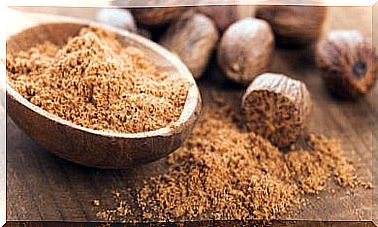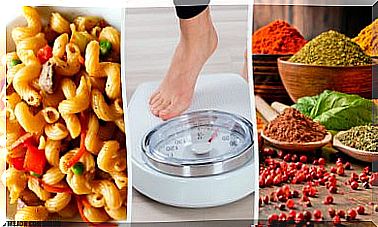Guidelines In Your Diet To Treat Gastritis
There are many of us who have suffered from annoying and painful gastritis. It is an inflammation of the gastric mucosa that causes heartburn and nausea, a discomfort that lasts for several days, preventing us from leading a normal life.
In this article we share some very effective guidelines to improve your diet and alleviate this gastric disorder. Keep reading!
Causes of gastritis
To begin with, the cause of gastritis is often caused by bacteria, such as Helicobacter pylori. However, it can also be due to bad habits in our diet maintained during some season.
On the other hand, certain medications, such as anti-inflammatories, are also the cause, often, of uncomfortable side effects, and almost always tend to attack our stomach.
It should also be said that stress is also one of the origins of gastritis on many occasions, and this is evidenced by this study published in the Journal of Gastroenterology of Peru, where, in addition, it is pointed out that the most common causes of gastritis Apart from stress, they are drugs and portal hypertensive gastropathy associated with the presence of Portal Hypertension. They are effects, without a doubt, of our lifestyle that almost always tend to damage our fragile immunity in these states of anxiety and nervousness.
Symptoms of gastritis

Breakfast
Option 1 : Infusion of chamomile, sage or rosemary. 2 normal toasts (fiber is not recommended when we suffer from gastritis, but it is to prevent it). Half a glass of papaya juice.
While chamomile is said to be beneficial in relieving gastritis symptoms, this article published in the Journal of Health Information and Research recommends against taking it by mouth in gastritis patients.
Option 2 : 1 glass of almond milk. A pear in pieces.
Between hours we can have, for example, a rice or hazelnut drink. They are easy to digest and help to improve gastritis, although there is no scientific evidence to support it.
Food
Option 1: A cooked breast, without seasonings. A carrot cream, and for dessert a baked apple.
Carrot seed oil reduces the effects of pylori bacteria in the stomach, as this research published in Food Chemistry shows . It helps to relieve bloating, flatulence and other gastric discomfort due to its antioxidant, antifungal and antibacterial properties.
Option 2 : A zucchini and white rice. For dessert, a natural skimmed yogurt with quince.
Dinner
Option 1: Pumpkin soup and a white fish. For dessert, pear compote.
Option 2: Steamed rice with boiled spinach, carrot and broccoli. For dessert, a papaya. Let us remember that papaya is ideal for treating gastritis, and this is evidenced by this article published in Costa Rican Agronomy: Journal of Agricultural Sciences, and in which it is said that this fruit has been recommended as a dietary treatment for people suffering from gastrointestinal problems (gastritis and ulcers).









